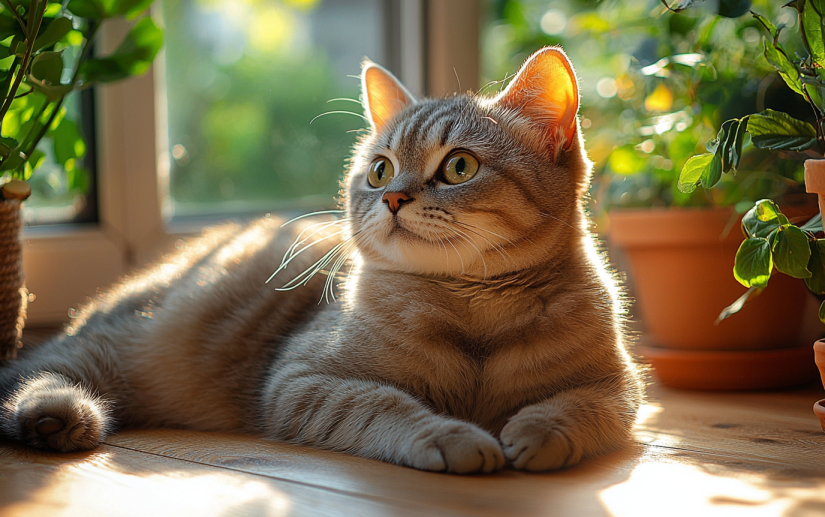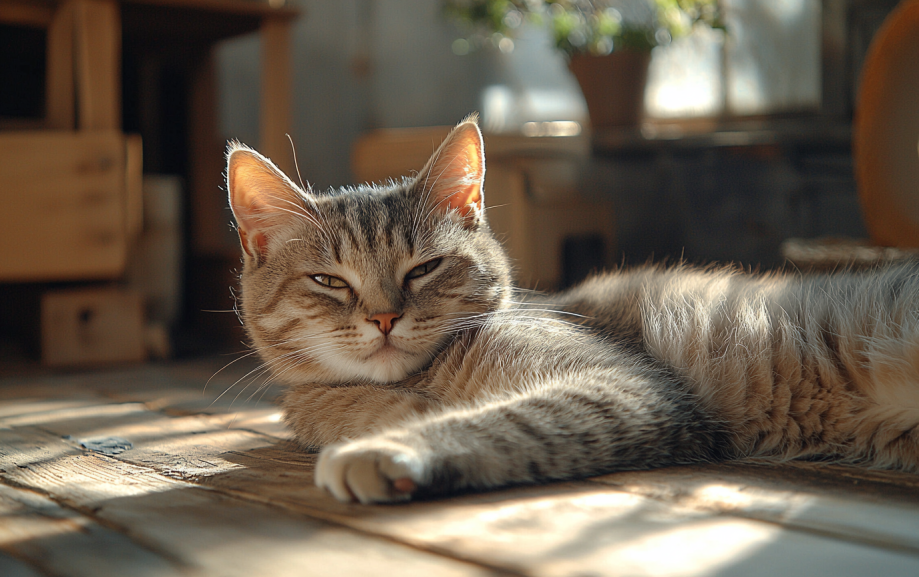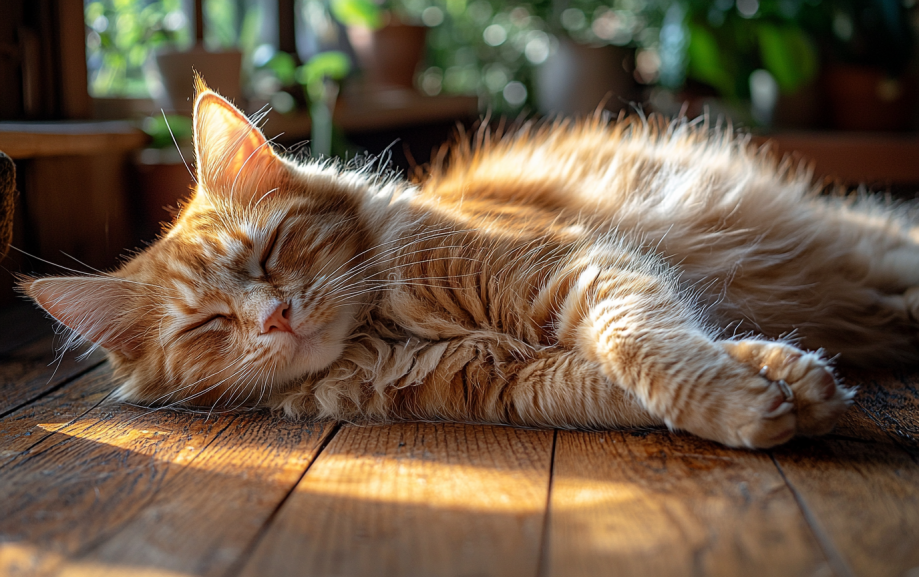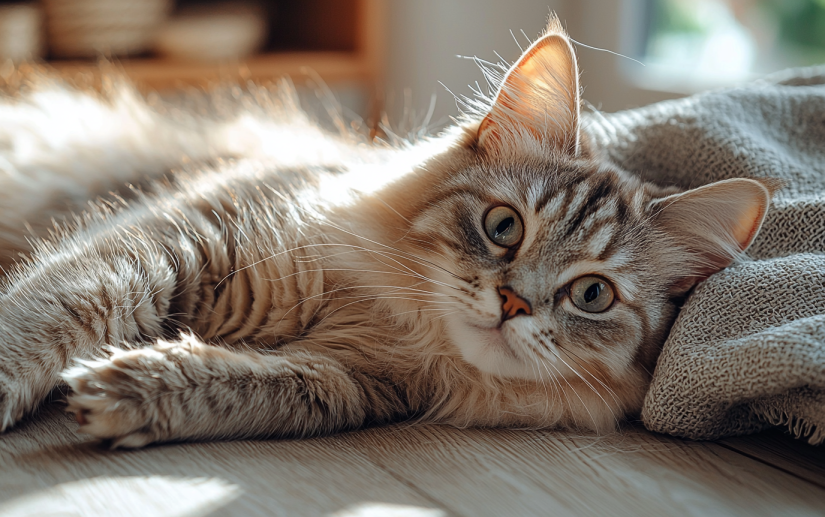What is Colitis in Cats?
Colitis is the inflammation of the colon, a key part of the digestive system in cats. This inflammation can cause a variety of gastrointestinal symptoms, ranging from mild to severe. Colitis can be either acute, where symptoms appear suddenly and are often intense, or chronic, where symptoms develop slowly over time and persist long-term.
Types of Colitis
- Acute Colitis: This type often occurs suddenly, usually due to dietary indiscretion, infections, or stress. It tends to be short-lived but can be severe.
- Chronic Colitis: This type develops over time and can be due to underlying health conditions like inflammatory bowel disease (IBD), parasites, or food allergies. Managing chronic colitis often requires long-term treatment and lifestyle adjustments.
Causes of Colitis in Cats
Understanding the causes of colitis in cats is essential for effective prevention and treatment. Several factors can contribute to the development of colitis, including:
- Dietary Indiscretion: Eating spoiled food, foreign objects, or a sudden change in diet can trigger colitis.
- Infections: Bacterial, viral, or parasitic infections are common culprits behind colitis.
- Stress: Cats are highly sensitive to stress, which can trigger or worsen colitis.
- Food Allergies or Intolerances: Certain ingredients in commercial cat food can cause an allergic reaction or intolerance, leading to inflammation in the colon.
- Inflammatory Bowel Disease (IBD): IBD is a chronic condition that can lead to persistent inflammation in the gastrointestinal tract, including the colon.
Less Common and Rare Causes
- Toxins or Poisoning: Exposure to toxic substances can cause severe gastrointestinal issues, including colitis.
- Tumors or Cancer: In rare cases, tumors in the colon can cause inflammation and symptoms similar to colitis.
- Autoimmune Disorders: Some cats may develop colitis as part of an autoimmune condition where the body’s immune system attacks its own tissues.
Symptoms of Colitis in Cats
Recognizing the symptoms of colitis early can make a significant difference in the outcome of your cat’s health. Common symptoms include:
- Frequent Diarrhea: Often with mucus or blood present.
- Straining to Defecate: Your cat may appear to be in discomfort while trying to pass stool.
- Increased Frequency of Defecation: Your cat may need to go to the litter box more often than usual.
- Vomiting: In some cases, colitis can cause vomiting, especially if the condition is related to dietary issues or infections.
- Weight Loss: Chronic colitis can lead to weight loss due to poor nutrient absorption.
- Lethargy: A general lack of energy or interest in usual activities.
Severe Symptoms and Complications
If colitis becomes severe or is left untreated, it can lead to more serious complications, such as dehydration, severe weight loss, and a decline in overall health. It’s crucial to seek veterinary care if your cat shows signs of severe colitis.
Diagnosing Colitis in Cats
Accurate diagnosis is key to managing colitis effectively. Your veterinarian will likely perform a series of tests to determine the cause of your cat’s symptoms, including:
- Physical Examination: Checking for signs of dehydration, abdominal pain, and overall health.
- Fecal Analysis: Testing a sample of your cat’s stool for parasites, bacteria, or other abnormalities.
- Blood Tests: To check for infections, inflammation, and overall organ function.
- Ultrasound or X-rays: Imaging to examine the colon and other parts of the digestive system.
- Biopsy: In some cases, a biopsy of the colon may be necessary to identify the underlying cause of inflammation.
Importance of Accurate Diagnosis
An accurate diagnosis ensures that the underlying cause of colitis is addressed, leading to more effective treatment. Misdiagnosis can result in inappropriate treatments, which might worsen your cat’s condition.
Treatment Options for Colitis in Cats

Treating colitis in cats typically involves a combination of medication, dietary changes, and supportive care. The specific treatment will depend on the underlying cause of colitis.
Medications and Therapies
- Anti-Inflammatory Drugs: These are often prescribed to reduce inflammation in the colon.
- Antibiotics: If an infection is the cause, antibiotics may be necessary to clear it up.
- Probiotics: These can help restore healthy gut flora and improve digestion.
- Steroids: In cases of severe inflammation or autoimmune-related colitis, steroids may be used.
Dietary Management
Diet plays a crucial role in managing colitis. Your veterinarian may recommend:
- Hypoallergenic Diets: To identify and eliminate food allergens that may be triggering colitis.
- High-Fiber Diets: Fiber can help regulate bowel movements and reduce inflammation.
- Easily Digestible Foods: To minimize irritation in the digestive tract.
Home Care and Monitoring
Monitoring your cat’s symptoms and maintaining a consistent routine are important for managing colitis. Ensure your cat has access to fresh water, a quiet environment, and regular feeding times.
Preventing Colitis in Cats
Preventing colitis involves a proactive approach to your cat’s health and well-being. Here are some key strategies:
Diet and Nutrition Tips
- Consistent Diet: Avoid sudden changes in your cat’s diet, which can upset their digestive system.
- High-Quality Food: Choose high-quality cat food that’s free from common allergens and irritants.
- Adequate Fiber: Ensure your cat’s diet includes enough fiber to promote healthy digestion.
Stress Management and Environmental Factors
- Stable Environment: Cats thrive in stable, predictable environments. Minimize changes in their routine and surroundings.
- Stress Reduction: Provide a calm environment and consider using calming products, such as pheromone diffusers, if your cat is prone to stress.
Regular Veterinary Check-ups
Regular veterinary check-ups can help catch potential issues early before they develop into serious conditions. Your vet can also provide guidance on the best diet and lifestyle for your cat’s specific needs.
Understanding the Role of Diet in Colitis Management

Diet plays a central role in both the prevention and management of colitis in cats. The right nutrition can soothe the digestive system, while the wrong diet can exacerbate symptoms.
Identifying Food Allergies and Intolerances
Food allergies and intolerances are common triggers for colitis in cats. Identifying these triggers is crucial for effective management.
- Elimination Diet: This method involves feeding your cat a novel protein and carbohydrate source that they haven’t consumed before. If symptoms improve, you can slowly reintroduce other foods to identify the allergen.
- Hydrolyzed Protein Diets: These diets break down proteins into smaller components that are less likely to trigger an immune response, making them suitable for cats with food allergies.
The Importance of Fiber
High fiber cat food is beneficial for cats with colitis as it helps to regulate bowel movements and support healthy gut bacteria.
- Soluble vs. Insoluble Fiber: Soluble fiber can help absorb excess water in the intestines, while insoluble fiber adds bulk to the stool, aiding in smoother passage. Both types can be beneficial depending on the specific symptoms.
- Sources of Fiber: High-fiber cat foods often include ingredients like pumpkin, psyllium husk, or beet pulp. Always consult with your vet before making dietary changes.
Behavioral and Environmental Factors in Colitis Management
Cats are sensitive creatures, and their environment and behavior can have a significant impact on their digestive health.
Reducing Stress in Cats
Stress is a major trigger for colitis, so managing stress is a key part of treatment.
- Environmental Enrichment: Providing your cat with toys, scratching posts, and perches can help reduce boredom and stress. Interactive playtime is also important for mental stimulation.
- Consistent Routine: Cats thrive on routine, and sudden changes can lead to stress. Try to keep feeding, play, and sleeping schedules consistent.
The Impact of Multi-Cat Households
Living with other cats can be a source of stress, especially if there is competition for resources.
- Resource Management: Ensure that each cat has access to its own food and water bowls, litter boxes, and sleeping areas. This reduces competition and can help lower stress levels.
Dealing with Separation Anxiety
Cats can suffer from separation anxiety, which may exacerbate colitis symptoms.
- Gradual Desensitization: If your cat becomes anxious when you leave, practice leaving for short periods and gradually increase the time to help them adjust.
- Comfort Items: Leaving items with your scent, like clothing, can comfort your cat while you’re away.
Long-Term Management of Colitis
For cats with chronic colitis, long-term management is essential to maintaining their quality of life.
Chronic Colitis: What to Expect
Chronic colitis may require ongoing treatment and lifestyle adjustments. You may need to continue medications, adhere to a special diet, and monitor your cat’s symptoms closely.
Adjusting Care for Ongoing Management
Regular follow-up visits with your veterinarian will help adjust treatment plans as needed. Keeping a symptom diary can also be useful for tracking your cat’s progress and identifying any triggers.
When to See the Vet: Emergency Signs

While some cases of colitis can be managed at home, certain symptoms require immediate veterinary attention.
Red Flags to Act On
- Severe Diarrhea: Especially if it’s frequent or contains blood.
- Vomiting: Persistent or severe vomiting can lead to dehydration.
- Lethargy and Weakness: If your cat is unusually weak or unresponsive, seek help immediately.
- Sudden Weight Loss: Rapid weight loss is a concerning sign that needs veterinary attention.
READ ALSO: Crystals in Cat Urine: Causes, Symptoms, and Effective Treatments
Preparing for a Veterinary Visit
When visiting the vet, bring along any records of your cat’s symptoms, diet, and any medications they’ve been taking. This information will help the vet make a more accurate diagnosis and treatment plan.
Conclusion
Managing colitis in cats requires a combination of vigilant care, appropriate treatment, and preventative measures. By understanding the condition and working closely with your veterinarian, you can help your cat live a comfortable and healthy life. Remember, early intervention is key to preventing colitis from becoming a chronic issue, so stay attentive to your cat’s needs and take action at the first sign of trouble. Your dedication to your cat’s health will go a long way in ensuring their well-being and happiness.

